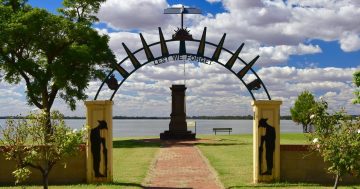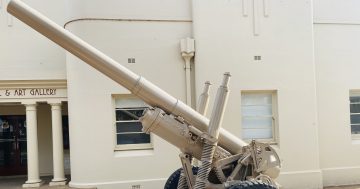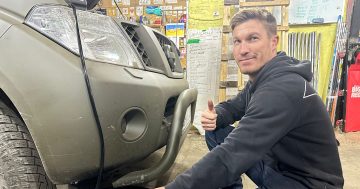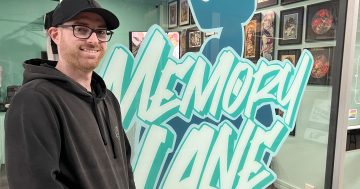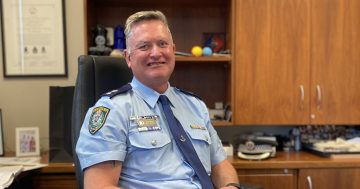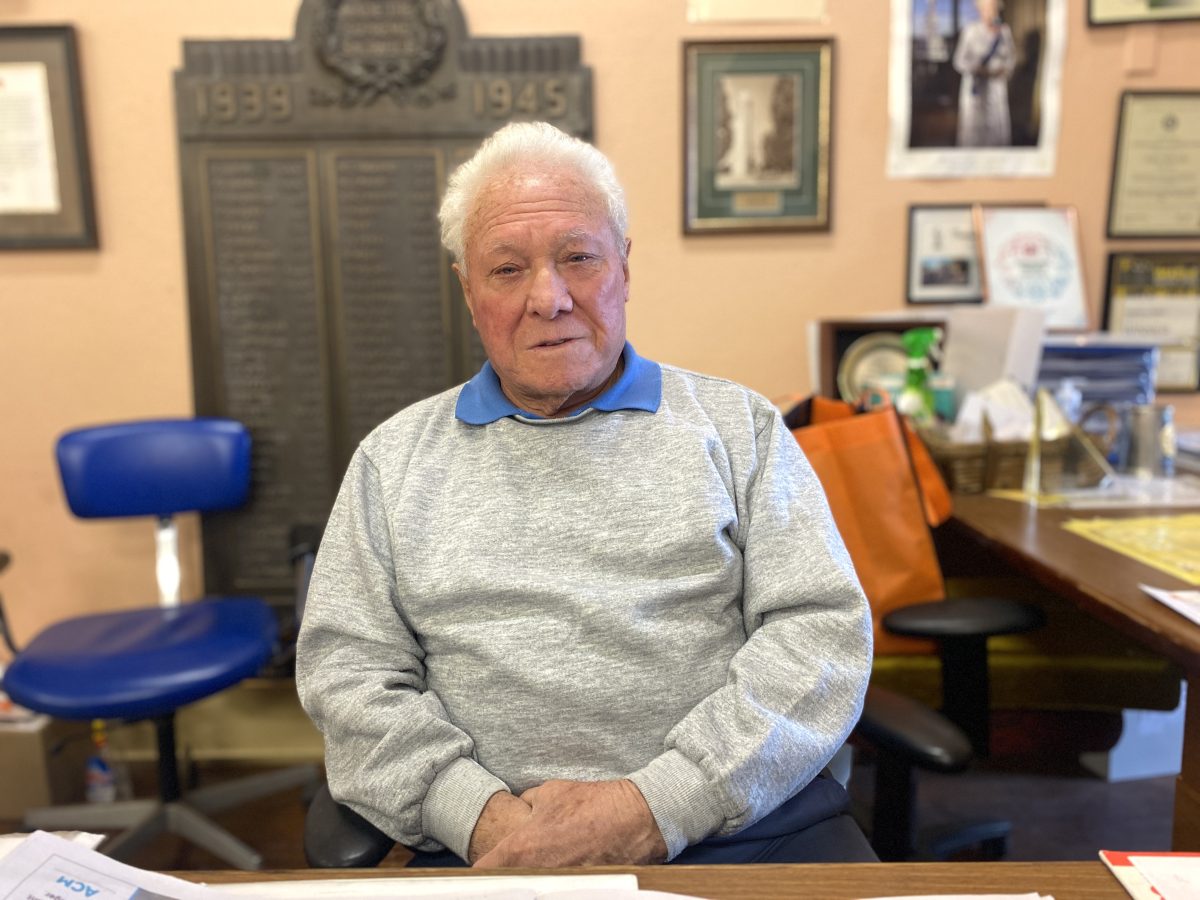
Renzo Rovere spent an incredible 54 years as a Griffith panel beater. Photo: Oliver Jacques.
Anyone who has visited the impressive Griffith War Memorial Museum would have likely come across Renzo Rovere, who has volunteered at the facility for more than a decade.
But before that, the 86-year-old national service veteran was well known in town for working his magic on damaged, broken-down cars that others would have written off.
He’s the former owner of Griffith Auto Smash Repairs and worked as a panel beater from the age of 15 to 70. Region caught up with Mr Rovere to find out about his life and his wisdom for future generations.
Where are you from originally and what was your childhood like?
I was born in 1937 in Texas, on the Queensland side of the border with NSW. My father worked there as a tobacco farmer; he migrated to Australia from Northern Italy.
We lived in a tin shack. I couldn’t go to school because there were no teachers during the war, so we did it all by correspondence, which was very tough.
How did you end up in Griffith?
When the war broke out, they rounded up all the ‘aliens’, including my father, and took them to work in a labour camp in the Northern Territory.
But NSW was different – they still had to produce food for the country. When my father was released, he came to Griffith, because he knew a lot of the Italians here. He worked out in McWilliams Winery and we lived in a workers’ cottage there in Hanwood.
Tell us about your life in the automotive industry.
I left school when I was 15 and got a job for the Chrysler car dealership, which was part of Griffith Producers, a co-operative that sold fruit and vegetables.
We had two spray painters and three panel beaters; I was one of them.
In 1967, we started our own business in Griffith Auto Smash Repairs, which is where the Griffith League’s Club is now. That kept going until 1989.
How was panel beating different in the 1960s to how it is now?
We used to preserve and restore a lot more cars – vehicles that these days they would write off. We would cut a car in half and join another car from the wrecking yards onto it. You’d just find a car hit on the other side. You’d take it into the workshop, bolt it together, make sure everything fits.
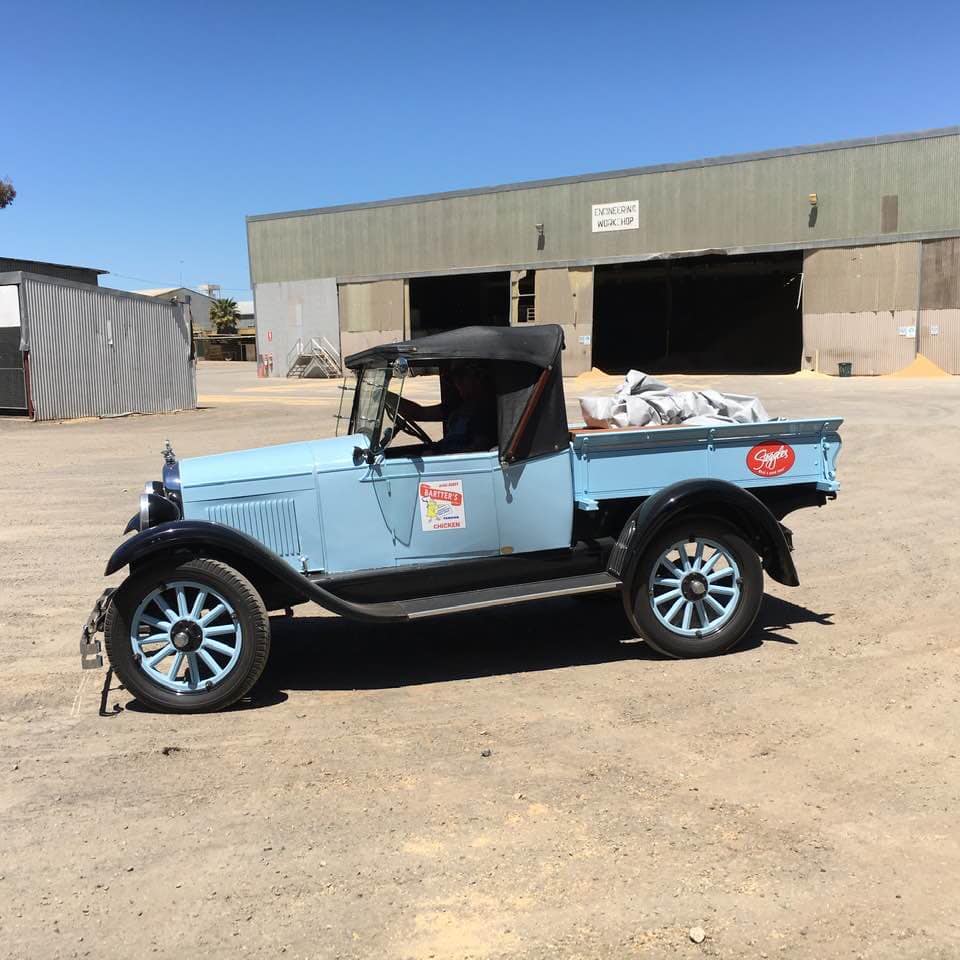
Renzo Rovere restored the late Peter Bartter’s 1927 Chevrolet ute at McWilliams Rd Hanwood in 2008. Photo: Pete Centofanti/Old Griffith NSW Album Facebook page.
Why did you stop work in your own business and what did you do after that?
When you’re on concrete all your life, your knees get worn, then your shoulders wear out and your back goes. That’s what happened to me.
I drove a gas tanker for two and half years after that. I got to meet farmers and people I knew; I enjoyed it.
I was then rung up by Bartter’s [chicken producers] and asked to work for them, replacing windows on cars. I did repairs, welding and went out on the farm and helped them drive trucks and tractors. It meant that I wasn’t stuck in a workshop all my life.
When did you do national service and what did you think of it?
I originally got called up in 1954 but because I was doing a welding course, someone rang up and deferred my placement. I eventually did it in 1956.
I went to Holsworthy, and marched, trained and exercised. It was the best three months of my life. I was a bit of a boofhead when I went in, but I learned a lot.
How are you spending your retirement?
I’ve been volunteering at the War Memorial for 10 years. It’s good, as I like to stay in contact with people. I’ve been in Rotary for 39 years and I’m involved in the markets every Sunday morning.
I’ve been married to my wife Rosetta for 58 years and have two children and five grandkids.
What’s one piece of wisdom you could impart on young people?
My advice is to throw your mobile phone away and go out and get your hands dirty.
The Griffith War Memorial Museum Inc., at 167-185 Banna Ave, has records, photos and memorabilia of MIA war veterans. The museum, staffed by volunteers, is open to the public on Fridays from 10 am to 2 pm and Saturdays from 11 am to 2 pm.







